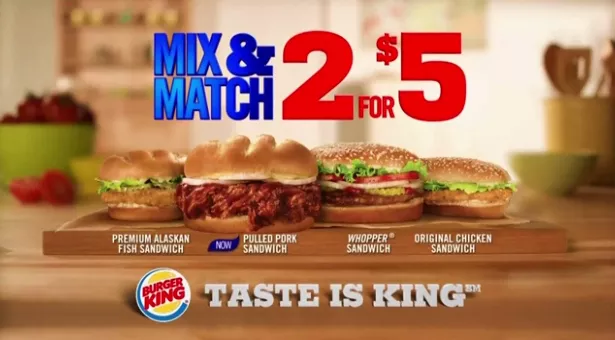Burger King, one of the largest fast-food chains globally, has made significant strides in modernizing its payment systems.
As technology evolves, customers increasingly seek convenient and efficient ways to pay for their meals. This article explores whether Burger King accepts electronic transfers and the details surrounding its payment methods.
Current Payment Methods at Burger King
Burger King offers various payment options to cater to its diverse customer base. These methods include cash, credit cards, debit cards, and mobile payments. The introduction of high-speed terminals across many locations has improved transaction speeds and customer experience.
Credit and Debit Cards: Burger King accepts major credit and debit cards, including Visa, MasterCard, American Express, and Discover.
This acceptance allows customers to use their cards for in-store purchases as well as through the drive-thru.
Mobile Payments: The chain has embraced mobile payment solutions. Customers can use mobile apps linked to their bank accounts or credit cards to make payments directly from their smartphones. This feature enhances convenience, especially for tech-savvy customers who prefer digital transactions.
Mobile Ordering: Burger King has developed a mobile app that allows customers to place orders ahead of time. Users can pay through the app using stored payment methods. This system streamlines the ordering process and reduces wait times at the restaurant.
see also: What Is The Annual Revenue of Cinnaholic?
Electronic Transfers: What You Need to Know
While Burger King accepts various forms of electronic payments, it is important to clarify what is meant by “electronic transfers.” Generally, this term refers to transferring funds electronically from one account to another, often through online banking or payment services like PayPal or Venmo.
Currently, Burger King does not accept direct electronic transfers in the traditional sense. Instead, it focuses on card payments and mobile transactions. This decision is likely due to several factors:
Transaction Speed: Quick-service restaurants like Burger King prioritize speed in service. Card payments and mobile transactions are processed quickly at the point of sale, ensuring that customers receive their food promptly.
Security Concerns: Accepting direct electronic transfers could introduce additional security risks. By limiting payment options to established card networks and mobile payment platforms, Burger King can better manage fraud prevention and data security.
Operational Complexity: Implementing direct electronic transfers would require significant changes to existing systems and staff training. By sticking with familiar payment methods, Burger King can maintain operational efficiency.
Recent Developments in Payment Technology
In recent years, Burger King has partnered with technology companies to enhance its payment systems further. For instance, the chain has installed high-speed terminals capable of processing transactions via both dial-up and Internet Protocol (IP) connections. These advancements have improved transaction times significantly.
The Omni 3750 terminals being installed across many locations allow for faster processing speeds—up to four seconds per transaction when using IP connections. This improvement is crucial for maintaining quick service during peak hours.
Advantages of Using Electronic Payments at Burger King
While electronic transfers are not accepted, using alternative electronic payment methods offers several benefits at Burger King:
Speed: Transactions with credit cards or mobile payments are usually completed within seconds, allowing customers to enjoy their meals quickly.
Convenience: Customers can pay without needing cash or coins, reducing the hassle of making change or carrying cash.
Rewards Programs: Many credit and debit cards offer rewards points for purchases, which can be beneficial for frequent customers.
Transaction Tracking: Electronic payments provide customers with a digital record of their transactions, making it easier to track spending.
Conclusion
In summary, while Burger King does not accept direct electronic transfers as a method of payment, it offers a variety of convenient options that cater to modern consumer preferences. Customers can use credit cards, debit cards, and mobile payments for their purchases at the restaurant.
The chain’s commitment to improving transaction speed and security demonstrates its focus on providing an efficient dining experience. As technology continues to evolve, it is likely that Burger King will adapt its payment systems further to meet customer needs while maintaining a strong emphasis on safety and efficiency. By understanding the current payment landscape at Burger King, customers can make informed choices about how they pay for their meals while enjoying the convenience that modern technology offers in fast food dining experiences.
Related topics:
- How Much Does A Whataburger Franchise Owner Make A Year
- What Are Mcdonalds Fish Fillet Made of?
- How Much Do Domino’s Owners Make?

